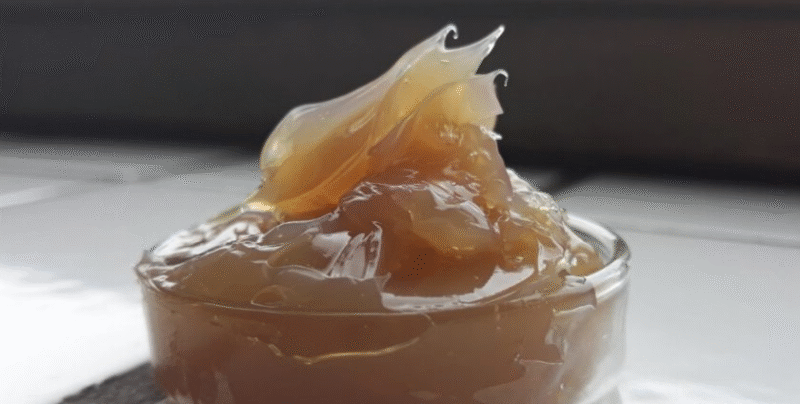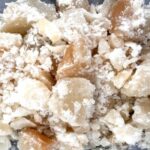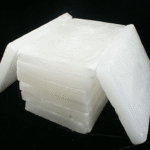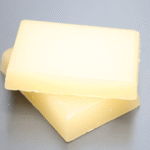🏭 Industrial Petroleum Jelly: Applications and Benefits
Industrial Petroleum Jelly, also known as Technical petroleum jelly or Industrial-grade petrolatum, is a specialized form of petroleum jelly that is primarily used in industrial settings for a wide range of applications. Unlike cosmetic-grade petroleum jelly, which is used for personal care and skincare purposes, industrial petroleum jelly is formulated with specific properties to meet the requirements of various industries. In this article, we will explore the applications and benefits of industrial petroleum jelly.
⚙️ What Is Industrial Petroleum Jelly (IPJ)?
Industrial petroleum jelly is a hydrophobic, chemically inert substance that forms a protective, waterproof barrier. It is typically amber or pale yellow in color and can vary in viscosity and melting point depending on its formulation.
It complies with technical-grade standards and is used where cosmetic or pharmaceutical purity is not required, making it ideal for:
-
Mechanical systems
-
Cable insulation
-
Rubber processing
-
Corrosion prevention
Industrial Applications
Industrial petroleum jelly finds its utility in numerous industries due to its unique properties and versatility. Some of the common applications include:
🧴 Lubrication in Mechanical Equipment
-
Used as a light-duty lubricant for gears, hinges, and sliding parts
-
Prevents friction and metal-to-metal contact
-
Functions in environments where dust and water resistance are critical
✅ Applied in mining, agriculture, and assembly lines
One of the primary uses of industrial petroleum jelly is as a lubricant and protectant. It is widely employed in machinery, equipment, and mechanical parts to reduce friction, wear, and corrosion. The high viscosity and excellent adhesion properties of Industrial Petroleum Jelly (IPJ) make it an effective lubricant for a variety of applications, including gears, bearings, valves, and sliding mechanisms.
🔌 Cable & Wire Industry
-
Used as a filling compound in telecommunications and power cables
-
Prevents moisture ingress and corrosion of conductors
-
Enhances insulation and service life
✅ Common in jelly-filled cables, fiber optics, and underground wiring
Industrial petroleum jelly is often utilized as an electrical insulator and dielectric compound in electrical and electronic equipment. Its high resistivity and thermal stability make it suitable for coating electrical connections, insulating wires, and protecting against moisture and environmental factors. It helps prevent short circuits, corrosion, and electrical breakdowns, ensuring the safe and efficient operation of electrical systems.
🧴 Rubber and Plastic Processing
The rubber and plastic industries rely on industrial petroleum jelly as a processing aid and mold release agent. It is used to ease the flow and processing of rubber compounds, improve mold release, and prevent sticking. Industrial Petroleum Jelly (IPJ) enhances the flexibility and workability of rubber and plastic materials during manufacturing processes, such as extrusion, molding, and casting.
🛡️ Metal Protection and Anti-Corrosion Coating
-
Acts as a rust preventative coating for metal surfaces
-
Protects tools, machinery, and spare parts in storage or transit
-
Creates a moisture barrier without reacting with the metal
✅ Ideal for marine equipment, construction tools, and metal parts
In metalworking applications, Technical petroleum jelly serves as a cutting and grinding fluid to improve tool performance, reduce heat generation, and enhance surface finish. It acts as a barrier between the cutting tool and the workpiece, reducing friction and increasing tool life. Industrial Petroleum Jelly (IPJ) is also used as a temporary rust inhibitor and protective coating for metal surfaces during storage and transportation.
👞 Leather and Rubber Industries
-
Maintains flexibility and softness of rubber materials
-
Prevents drying, cracking, and weathering in leather products
-
Used in the molding and extrusion process of rubber goods
✅ Common in boots, belts, gaskets, and rubber sheets
Industrial petroleum jelly is utilized in the leather and textile industry as a softening and waterproofing agent. It helps condition leather, enhance its suppleness, and provide water repellency. In textile applications, industrial petroleum jelly can be used as a lubricant during spinning, weaving, and knitting processes to reduce friction and improve the overall efficiency of the manufacturing operations.
🧪 Chemical and Process Industries
-
Acts as a release agent in molding and manufacturing
-
Serves as a carrier or sealant for gaskets and process lines
-
Resistant to many acids, alkalis, and solvents
✅ Used in chemical plants, foundries, and refineries
🧴 Lubrication in Mechanical Equipment
-
Used as a light-duty lubricant for gears, hinges, and sliding parts
-
Prevents friction and metal-to-metal contact
-
Functions in environments where dust and water resistance are critical
✅ Applied in mining, agriculture, and assembly lines
Other Applications of Industrial Petroleum Jelly (IPJ)
Apart from the aforementioned uses, industrial petroleum jelly has various other industrial applications, including:
- Adhesive and sealant formulation
- Tire manufacturing
- Ink and pigment production
- Paper and cardboard production
- Pharmaceuticals and medical applications (e.g., ointments, creams, and lubricants for medical devices)
✅ Benefits of Industrial Petroleum Jelly (IPJ)
Technical petroleum jelly offers several benefits that make it a preferred choice in industrial applications:
High Viscosity and Adhesion
Industrial petroleum jelly has a high viscosity, which allows it to adhere effectively to surfaces and provide long-lasting lubrication and protection. Its thick consistency ensures that it stays in place even under high temperatures, heavy loads, or extreme operating conditions.
Corrosion Protection
The ability of industrial petroleum jelly to repel moisture and create a protective barrier helps prevent corrosion on metal surfaces. It inhibits the oxidation process and protects against rust, extending the lifespan of machinery, equipment, and metal components.
Thermal Stability
Industrial petroleum jelly exhibits excellent thermal stability, making it suitable for applications where high temperatures are involved. It can withstand elevated temperatures without breaking down or losing its lubricating properties, ensuring consistent performance in demanding industrial environments.
Chemical Resistance
Industrial-grade petrolatum is resistant to various chemicals, including acids, alkalis, solvents, and fuels. This chemical resistance property enables its use in applications where exposure to aggressive substances is expected.
Cost-Effectiveness
Compared to specialized lubricants and protective coatings, industrial petroleum jelly offers a cost-effective solution for many industrial applications. Its versatility and wide range of uses make it a reliable and economical choice for industries that require lubrication, protection, and insulation.
❓ Frequently Asked Questions (FAQ)
1. What is the difference between industrial and cosmetic petroleum jelly?
Industrial petroleum jelly is less refined, colored, and meant for non-human contact applications, unlike the highly purified cosmetic-grade variant.
2. Can it be used in food or pharmaceutical applications?
No. Industrial-grade petrolatum is not food-safe or approved for medicinal use. Only use USP or pharmaceutical-grade for those purposes.
3. Is Technical Petroleum jelly resistant to high temperatures?
It has a moderate melting point (around 60–80°C), making it suitable for ambient and low-heat applications. It is not recommended for high-temperature machinery.
4. Can it be used in water-exposed environments?
Yes. Its water-repellent properties make it excellent for marine and outdoor uses, especially for rust prevention.
5. How is it applied?
It can be applied manually or with dispensers. For large-scale use, it’s supplied in bulk drums, pails, or tins, and often applied with brushes or nozzles.
🏁 Conclusion- Industrial Petroleum Jelly (IPJ)
Industrial petroleum jelly offers a reliable, versatile, and economical solution across multiple industries. From corrosion resistance and cable insulation to rubber processing and lubrication, it continues to prove its value in day-to-day operations.
💡 Whether you’re managing cables, protecting metal parts, or producing rubber goods, technical-grade petroleum jelly can improve durability, efficiency, and performance.
📣 Call to Pars Universal Bitumen
👉 Need High-Quality Industrial Petroleum Jelly (IPJ) for Your Operation?
We in Pars Universal Bitumen, supply custom formulations of petroleum jelly designed for cables, machinery, rubber, metal, and leather industries.
📞 Connect with our industrial product team today to request a technical datasheet, MSDS, or custom quote.
🛒 Request a Quote Now → PUB-Ltd.
👉 Get a quote now to speak with our experts, request a technical data sheet, or receive a custom quote for industrial-grade petrolatum tailored to your project. For more information or to place an order, please contact PUB-Ltd sales team 📩 Contact Us Now.




